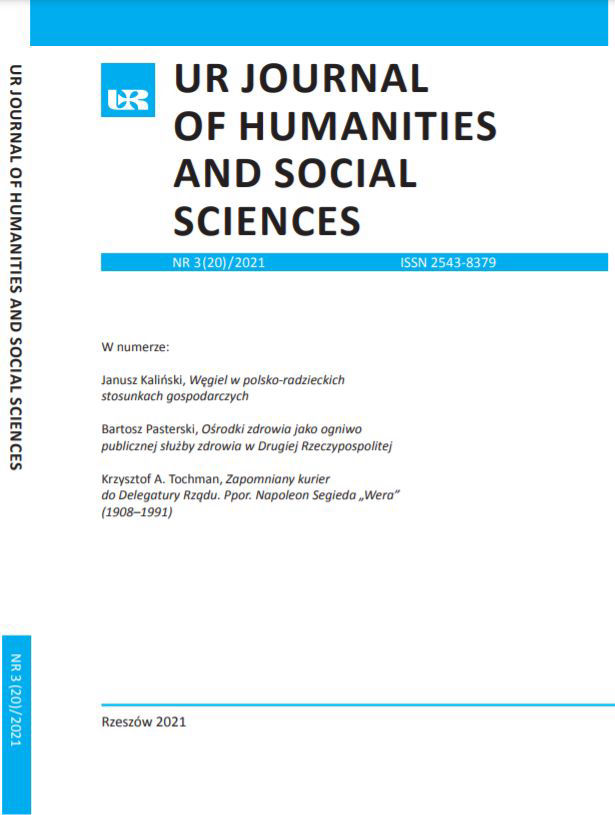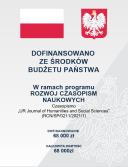Diplomat. Soldier. Writer. Count Franciszek Xawery Pusłowski in the light of the documents of the communist apparatus of repression
DOI:
https://doi.org/10.15584/johass.2021.3.5Keywords:
Gentry, count, diplomacy, soldier, surveillanceAbstract
Count Franciszek Xawery Pusłowski was born in France on June 16, 1875. He studied law, philosophy and art history. He was fluent in six languages. During World War I, he was arrested in Russia. As a result of efforts made by influential friends in 1918, he was released from captivity after the personal decision of Feliks Dzerzhinsky, the head of the Cheka. After the end of World War I, he participated in the Versailles peace conference. Until 1923, he served in the diplomatic corps. He was an opponent of Józef Piłsudski and his political camp. After being released from military and diplomatic service, he was active as a writer, publicist and social activist. He also led an intense social life. During World War II, he lived in Krakow. After the war, in 1945-1950, he was the vice-president of the Society of Friends of Fine Arts. He also worked as a sworn translator at the District Court in Krakow and as a lecturer at the AGH University of Science and Technology, the Jagiellonian University and the Krakow University of Technology. Despite the politically uncertain times, Pusłowski ran his salon in Kraków after 1945, where Kraków artists, journalists, sportsmen, soldiers and his students from Kraków universities used to visit. Count Pusłowski was famous for the fact that, thanks to his relatives living abroad, he had at his home excellent coffee and curiosities, rare for the post-war years, such as figs and pineapples. He remained under the interest of the communist security authorities, inter alia, due to international contacts and the art collection.Downloads
Download data is not yet available.
Downloads
Published
2021-09-30
How to Cite
Machniak, A. (2021). Diplomat. Soldier. Writer. Count Franciszek Xawery Pusłowski
in the light of the documents of the communist apparatus of repression. Journal of Humanities and Social Sciences, 20(3), 78–92. https://doi.org/10.15584/johass.2021.3.5
Issue
Section
Articles
License
Copyright (c) 2021 Wydawnictwo Uniwersytetu Rzeszowskiego

This work is licensed under a Creative Commons Attribution-NonCommercial 4.0 International License.



